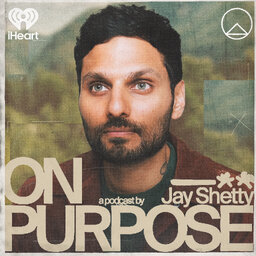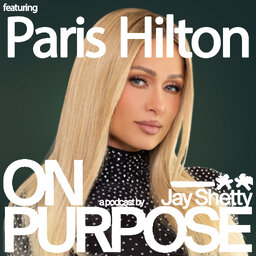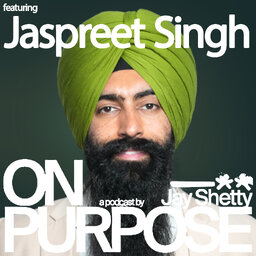Humble the Poet ON: How to Get Out Your Own Way to Find Love & Breaking Society's Common Myths About Relationships
Today, I am talking to Kanwer Singh aka Humble the Poet. Humble is a toronto-bred mc/spoken word artist with an aura that embodies the diversity and resiliency of one of the world’s most unique cities. He stimulates audiences with ideas that challenge conventional wisdom and go against the grain, with dynamic live sets that shake conventions and minds at the same time. Humble's latest EP titled Righteous/Ratchet features the first single H.A.I.R, a celebration of women of all shapes, sizes, hair and walks of life. His self directed video for H.A.I.R has amassed almost 2 million views since its release. The video features YouTube sensation and longtime collaborator, Lilly Singh. His first book Unlearn: 101 Simple Truths For A Better Life was published through Indigo Press in October 2017 and became Heather's Pick and has stayed on the Globe & Mail Bestsellers list since its release. Humble's next book Things No One Else Can Teach Us was released in the fall of 2019.
Humble emphasizes the importance of making the relationship you have with yourself the best among all the relationships you currently have. This is because knowing your own self worth will make setting boundaries easier for you and for the people around you. We exchange thoughts on what makes us resilient, why self respect matters more than self-esteem, the constant validation we seek from others, and what makes love so simple.
What We Discuss:
- 00:00:00 Intro
- 00:04:54 Why do we try to impress others?
- 00:06:46 Self-esteem versus self respect
- 00:12:27 What makes us resilient?
- 00:17:04 Not everybody’s going to like you
- 00:20:27 Be in relationship with yourself first
- 00:25:36 There can’t be love if there’s resentment
- 00:34:14 How to develop a healthy relationship?
- 00:40:21 We are attracted to what’s familiar, not what’s healthy
- 00:54:46 Not getting a reward is not a punishment
- 00:58:47 When you’re in a romantic relationship with someone
- 01:06:45 Love is simple
Episode Resources
- Humble the Poet | Website
- Humble the Poet | Facebook
- Humble the Poet | Twitter
- Humble the Poet | Instagram
- Humble the Poet | YouTube
Want to be a Jay Shetty Certified Life Coach? Get the Digital Guide and Workbook from Jay Shetty
https://jayshettypurpose.com/fb-getting-started-as-a-life-coach-podcast/
In 1 playlist(s)
On Purpose with Jay Shetty
My name is Jay Shetty, and my purpose is to make wisdom go viral. I’m fortunate to have fascinating …Social links
Follow podcast
Recent clips

How to Fall in Love Without Losing Yourself This Year (5 Rules to Avoid Getting Stuck in the Wrong Relationship)
21:47

PARIS HILTON: The REAL Story Beyond the Headlines, Fame, Misconceptions, and The Journey to FINALLY Reclaim Her Narrative
1:07:01

Jaspreet Singh: Why Most People Stay Broke (Follow THIS 7-Step System to FINALLY Stop Living Paycheck-to-Paycheck!)
1:19:03
 On Purpose with Jay Shetty
On Purpose with Jay Shetty